Latino workers face staggering risks on NC construction sites. Why are so many dying?
For many Latino construction workers, work days in the U.S. begin with a simple prayer, Alexis Goldomez says.
People pray “to be able to return home,” said Goldomez, a framing carpenter who grew up in Honduras and now works in Charlotte.
But in North Carolina, those prayers too often go unanswered.
Latino workers are at a much higher risk of dying on North Carolina construction sites than white and Black workers, a Charlotte Observer investigation has found.
Two numbers tell much of the story. Hispanic employees make up 27% of those who work on North Carolina construction sites, according to the U.S. Census. But they accounted for more than 60% of the construction employees who died on the job, according to the last annual count.
More needs to be done to protect Hispanic construction workers, said Mauricio Solano, operations director at El Centro Hispano. His group advocates for North Carolina’s Hispanic people, 10.5% of this state’s population.
Too many contractors let workers on construction sites without proper safety training, he said.
“The workers must demand safety,” he said. “This is hard work. The workers need to know what is safe.”
Clermont Ripley, Co-Director of the North Carolina Justice Center’s Workers’ Rights Project, said the large number of deaths among Hispanic workers suggests “we’re not valuing the lives of Latino workers the same as others.”
“When we look at that high percentage, we should be outraged,” she said. “We should be demanding that something be done about this.”
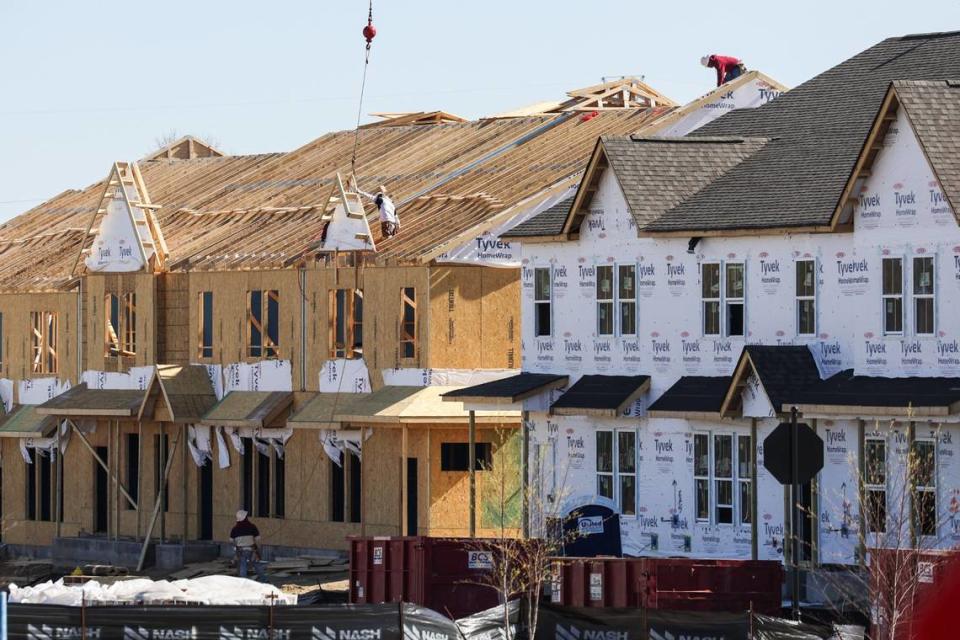
‘Afraid to lose their job’
Experts and construction workers point to several key reasons for the disparity: Latino workers perform many of the most dangerous jobs and tasks, such as roofing. Those who don’t speak English well often don’t understand important communications on job sites, and some construction companies don’t provide translators at safety meetings, workers told the Charlotte Observer.
Workers who’ve recently immigrated are often more vulnerable to pressure from supervisors who want potentially dangerous jobs done fast, workers and experts say.
“They’re willing to go outside the safety lines sometimes because they don’t want to lose their jobs,” said Ranferi Calvillo, a construction worker and organizer with the Ironworkers Local Union 848, which covers the Carolinas.
Latino workers face higher risks at many job sites, not just construction. From 2009 to 2017, Latino people in North Carolina died on the job at roughly twice the rate of white and Black workers, according to a 2022 study published in the American Journal of Industrial Medicine,
Companies and regulators owe it to workers to stop that pattern, said Morgan Richey, an author of that study.
“These folks are doing dangerous jobs that need to be done,” he said. “The least we can do is use the tools we have to reduce the amount of carnage.
“These people are the backbone of our country.”
‘Waiting for them to come back home’
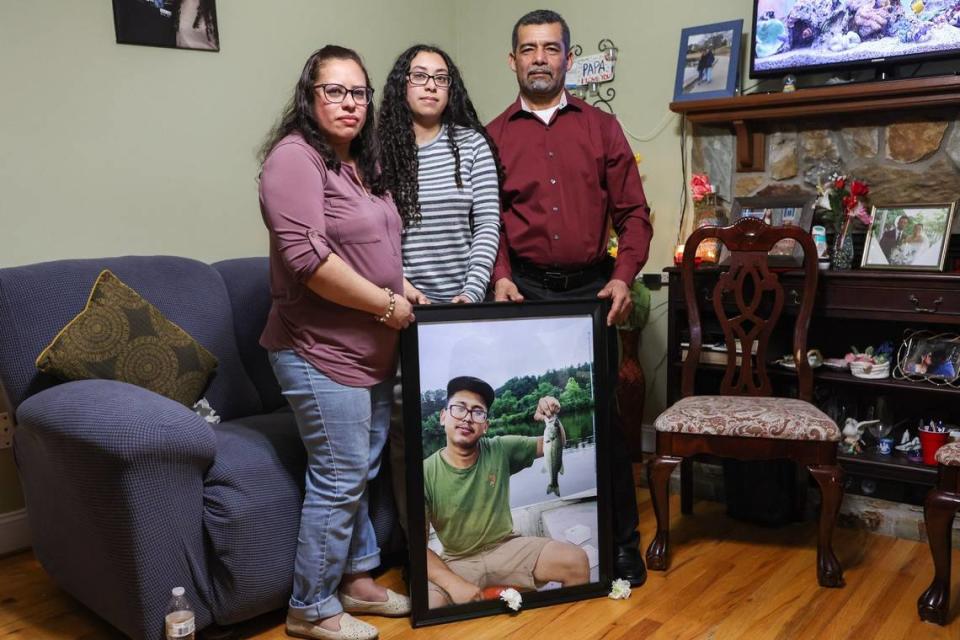
While some construction tragedies grab headlines, many Latino construction workers die without news coverage.
Among those who died on the job in North Carolina last year:
▪ Jose Canaca Bonilla, Gilberto Monico Fernández and Jesus “Chuy” Olivares plunged 70 feet to their deaths on the morning of Jan. 2, 2023, when the scaffold they were standing on collapsed. The scaffold, which workers were using to build a residential tower near Charlotte’s Dilworth neighborhood, was “heavily rusted and deteriorated,” state labor department officials found.
▪ Guadalupe Alvarado’s last moments came on April 27, 2023, while he was working in Union County, about three miles south of Charlotte’s Outerbelt. He was standing in a wooden box that was being hoisted by a forklift when the box tipped off the forks, state records show. Alvarado, 28, was crushed between the ground and the falling box. Labor officials cited three companies for serious safety violations.
▪ Ricardo Castillo, 59, died in another fall on June 9, 2023. While working for a framing company, he plummeted from the second floor of a townhouse under construction in Raleigh and suffered a fatal head injury. Inspectors cited his employer for two serious safety violations related to required fall protection and training.
“I want there to be more safety so this will never happen again to Latino families,” Iris Bonilla, the mother of 26-year-old scaffolding collapse victim Jose Canaca Bonilla, told the Observer after her son died. “Because their parents, mothers, sons – they’re waiting for them to come back home.”
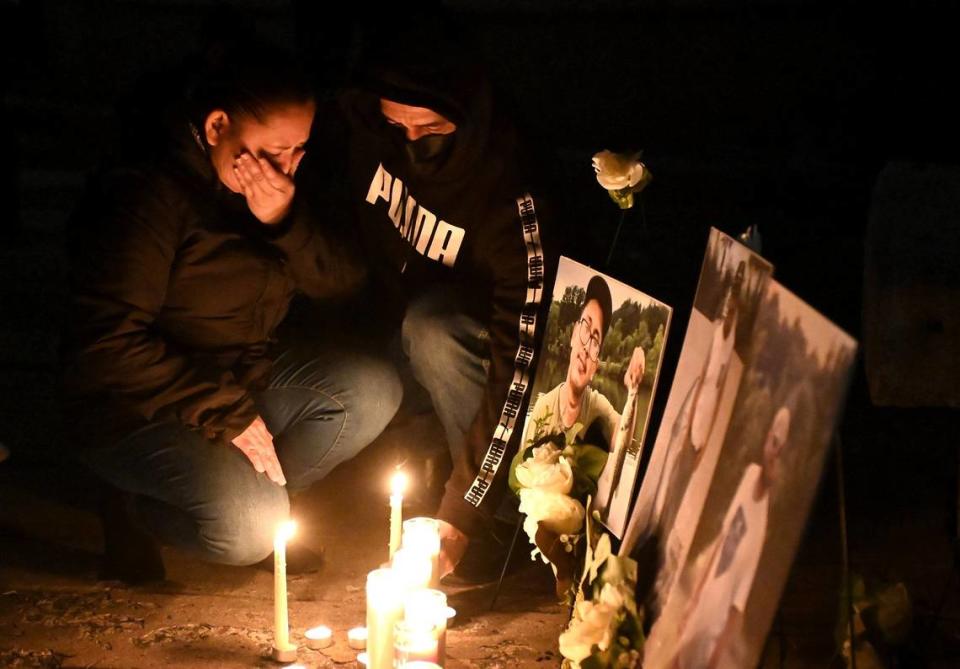
Tackling the hard work others avoid
Charlotte construction worker Alejandro Corvera, 21, says he thinks there’s a simple reason Latino workers so often die at work. They’re the ones doing the most dangerous jobs.
Goldomez, the Charlotte framing carpenter, agreed.
“Truly, Latinos put ourselves in harm’s way more often,” Goldomez said, speaking in Spanish during an interview at the Southeastern Carpenters Regional Council training center in Charlotte. “And we do the most dangerous work in construction.”
The numbers support that observation. Consider the people who do roofing, one of the most dangerous jobs in the U.S. In North Carolina, 63% of roofers are Hispanic, according to the latest available Census figures.
OSHA requires construction companies to provide workers with appropriate safety equipment, such as safety glasses and harnesses needed to prevent falls. But some companies don’t, construction workers interviewed said.
Latino workers who’ve recently come to the U.S, may face particularly high risks. Workers unfamiliar with American labor laws may not be provided safety equipment or training. They may also be threatened with termination for reporting injuries, according to Richey’s study.
Immigrant workers may also be less likely to decline a hazardous task or report an unsafe work environment, the study says.
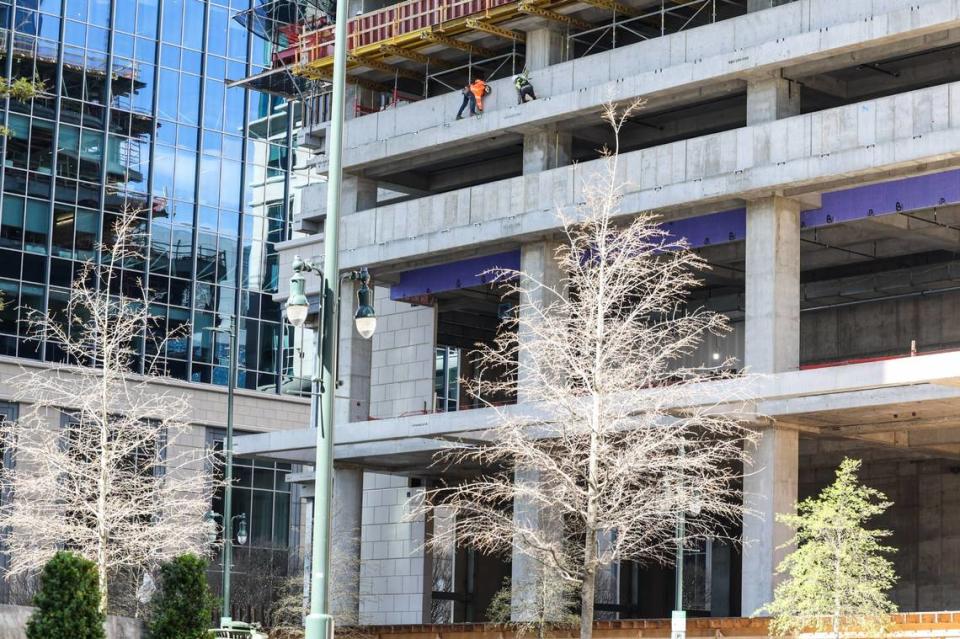
Language barriers may play a role as well, particularly when companies don’t help foreign-born workers overcome them. Several Latino construction workers interviewed by The Observer said there are no translators at many of the safety meetings that construction companies hold for their workers.
“If there’s no translator at the meetings, do they know exactly what’s going on?” asked Rony Yanes, a longtime plumber who came to the U.S. from Guatemala. “I wonder how many people get the full point.”
Goldomez said he broke his ankle on a construction site in Tennessee in 2022. No one warned him in Spanish that there was a hole in the floor of the building he was working on, he said.
“When you don’t understand the language it makes what you’re doing very difficult,” he said.
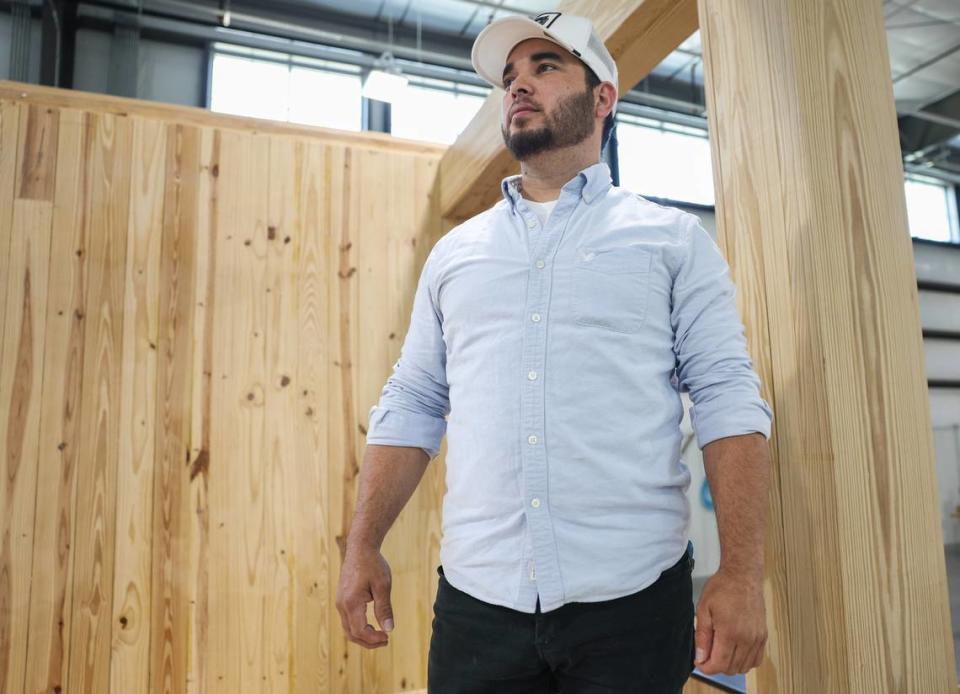
Jacob Garmon, director of safety for Carolinas AGC, a large industry trade group, said that most large contractors have Spanish-speaking employees who are able to get safety information out to Hispanic employees.
State workplace safety officers who inspect job sites aren’t always able to communicate with non-English speakers. Of the roughly 80 compliance officers who currently work for the state’s Occupational Safety and Health division, nine are fluent in Spanish, according to Paul Sullivan, the division’s assistant deputy commissioner of the division.
Sullivan noted that many of the division’s job postings have the following language: “The ability to speak and understand Spanish is an asset, but not required for the position.”
He’d love it if more of their inspectors could speak Spanish, he said.
Solano, the Latino advocate, would too.
“The Latino people often don’t have a voice in these inspections, because the language is a barrier,” he said. “We have to change this.”
Some, including Charlotte workers comp lawyer Vernon Sumwalt, say there’s little doubt companies and regulators should do more to protect Latino workers.
“They do the hard work other folks are too proud or unwilling to do,” Sumwalt said. “They deserve 100 percent of our attention when it comes to safety. But when corners are cut and companies move too fast, who’s the victim?”
Observer multimedia journalist Diamond Vences and La Noticia reporter Yuliana Montiel contributed.
Editor’s note: If you think your working conditions are unsafe or unhealthy, you can report your concerns to the North Carolina Occupational Safety and Health division by filling out a complaint online or calling the complaint desk at 919-707-7660 or 1-800-NC-LABOR (1-800-625-2267).

